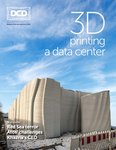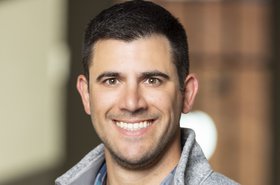If there is one thing we lack in this industry, it is transparency. With competition high, people hold their secrets close to their chests. After all, that secret could be their advantage.
But really, by sharing our knowledge, we increase the chance of developing, improving, and innovating. This is a philosophy that Knight Frank stands by strongly.
“From the outset, we wanted to create greater transparency across the sector,” said Stephen Beard, head of data centers and partner at Knight Frank. “For too long, the sector has been too opaque. In some ways, we're quite similar to the legal sector where we talk in technological terms, when in reality, it's very easily explained what you're trying to say.”
In an effort to tackle this opacity, Knight Frank has worked with DC Byte, a data center market consultancy. As a result of this relationship, Knight Frank has published open-access quarterly reports that look deeper into the data center markets around the globe. Stephen Beard explained at our recent DCD>Connect London event how this information has informed the Knight Frank business.
“First and foremost is the occupational side of things. So, advising enterprise and retail customers, wholesale customers, and even cloud customers on acquiring space, and that's not an easy job, because it is time-consuming having to explore each and every market, look at the operators, and make sure the spec suits the client's needs, and then ultimately negotiating the most protective and commercial lease terms.
“It penetrates all the markets for us to establish where the vacancy rates are, and which markets have a shortfall in terms of capacity going forward, and that leads to the development side of things.”
Knight Frank is able, because of this information, to jump ahead of the game, to see not only what is needed now but also what will be needed in the coming months.
“We can very quickly see that the market, for example in Milan, Warsaw, or Cambodia, might have a shortfall, and we need to get in there now. So in some ways, much like the operator market is chasing the cloud, we're trying to get ahead of that cloud in anticipation of that market growth. So we can go there, we can meet the utility, we can meet the transmission, we can meet with the fiber providers, and very quickly ascertain where the next best data center development site is.
“That's where we've been extremely successful in the last 18 months. On the other side of the coin, we also advise those landowners, because one of our frustrations as agents is we only get paid when a transaction happens, and obviously, most operators are no longer buying land speculatively.”
This insight also enables Knight Frank to talk to the landowners, and help them to see the value of their land.
“Because we've got our real estate guys on the ground that know the market well and we've proactively engaged with the utility, we know which site will be the site, the one that's within the availability zone today, the one that has the right amount of scale, the one that has at least 30 megawatts of IT runway,” explains Beard.
“We'll go and meet the landowner and these are the most fascinating conversations you can imagine, particularly in emerging markets where land cost is relatively low in comparison to London and Frankfurt, which might be 10 million an acre.
“You meet the landowner, and you say ‘what's your bandwidth today, Mr. landowner?’ He tells us it's 250 euros in industrial land value. Well, actually, if we can secure that power, if we can get that zoning and that building permit, if we can bring in these fiber providers, it could be worth ten times that.”
It is clear that Knight Frank, if not a crystal ball, at the very least has a magnifying lens to look at the potential markets and see what is coming. To find out more about which Tier 2 markets are upcoming, and the moves Knight Frank expects to make, listen to the full DCD>Talk here.





